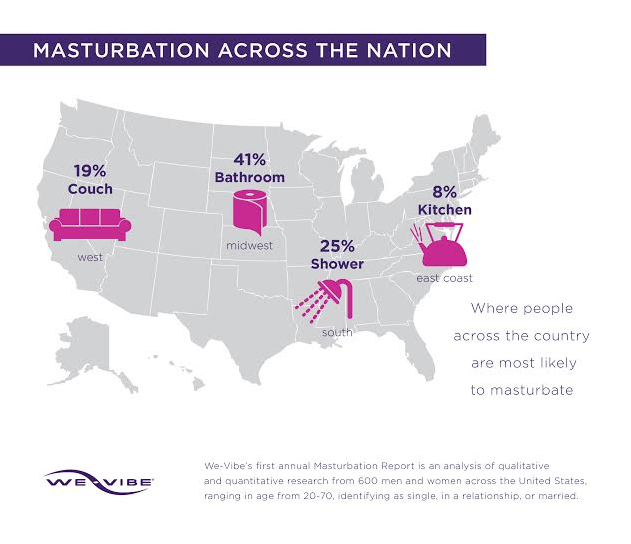Dancing the Horizontal Mambo
As a sexual addiction and intimacy disorders specialist, I am often asked about the frequency of sex. Couples want to know what is “healthy.” Usually, they’re afraid they’re either having way too much sex or not nearly enough. Either way, it’s a legitimate concern that can easily lead to stress, anxiety, depression, self-esteem issues and even the end of an otherwise successful relationship. A quick online search will bring up a huge volume of statistics — most of them not scientifically generated — regarding the frequency of sex among long-term, committed couples. The numbers presented in these “studies” vary widely, depending on the source and what the author is trying to promote. So in this instance, Google, Yahoo, Bing and similar search engines are somewhat useless.
Probably the best source for scientifically reliable data on this topic comes fromGeneral Social Survey, which has tracked American sexual behaviors since the 1970s. According to the GSS, married couples have sex an average of 58 times per year. However, this number lumps 25-year-old newlyweds into the same pool as senior citizens who’ve celebrated their golden anniversary, and it does not include unmarried long-term couples. There may or may not be much difference in the sexual behaviors of married and unmarried committed couples, but there is almost certainly a difference between young newlyweds and their grandparents, which means the 58 times per year number is not overly-meaningful. Recent GSS surveys support this assertion, showing that couples in their 20s have sex 111 times per year on average, with frequency dropping steadily, about 20 percent per decade, as couples age. In other words, young couples have sex slightly more than twice per week on average, with the number declining steadily over time.
OMG! My Numbers Are Off!
If you just read the statistics provided above and thought, “Uh-oh, there is something wrong with me/us,” you’re not alone. Maybe you and your partner have done it 10 times this week and it’s only Tuesday, or maybe you’ve not been physically intimate since your neighbor’s last Fourth of July party. Either way, there is no need to freak out. You’re not necessarily hyper-sexed if you’re well above the norm, nor are you automatically under-sexed if you’re far below the norm. Human sexual arousal patterns cut a very wide swath in terms of what people like to do and how often they like to do it. And frequency of sexual arousal and behavior can be influenced by any number of factors, including:
• Age
• Life circumstances
• Physical and emotional health
• Medications
• Having children at home
• Hormonal imbalance
• Recent losses and grief
• Substance use and abuse
• Workload and stress
• Relationship status
• A history of previous trauma or abuse
• Diminished physical attraction and a corresponding lack of intimacy
• Secrets and lack of relationship trust
The simple truth is that everyone is different and there is not a “norm” for sexual behavior. Some people are heterosexual; others are homosexual or bisexual. Some people are into a fetish or kink; others are relatively “vanilla.” Some people like to get it on a lot; others can take it or leave it. That’s the way it is, that’s who we are and there is nothing inherently right or wrong with any of it. As long as your sexual behavior (or lack of it) isn’t illegal, affecting your self-esteem, troubling to your relationship or leading to negative life consequences, why worry?

Sexless and Happy? Really? Sure. Maybe.
People who are having a lot of sex are usually pretty OK with that. Typically, they only worry about things if they are sexually addicted and their carnal compulsivity is causing problems. Frankly, most couples who worry about frequency of sex tend to fear their frequency is significantly below the curve, so to speak. This is especially true for couples who qualify as “sexless.”
Generally speaking, a sexless marriage is one in which a committed couple has sex less than 10 times per year. About 15 to 20 percent of long-term couples fall into this category. This may or may not be an issue, depending on the couple. Some couples, especially older pairs who’ve been together a long time, are perfectly fine with once or twice a year or even not at all, thank you very much. Not having sex doesn’t mean these couples aren’t deeply in love, monogamously committed and happy together. It just means that sex isn’t as high a priority for them as it is for some of their friends, neighbors or people they see on TV and in the movies.
That said, many couples do find infrequent sex to be an issue. In fact, numerousstudies have shown that lack of sex corresponds directly with marital instability and thoughts of leaving a relationship. Sometimes one person’s sex drive just doesn’t match his or her partner’s sex drive. This issue often arises in couples counseling. Sometimes both partners want to be sexual, but one (or both) is not interested in sex with his or her spouse. This can be caused by any number of factors, including lingering resentments, lack of emotional intimacy, diminished physical attraction, differing sexual interests, etc. Lack of sexual interest may also be the result of an underlying psychological condition such as depression, anxiety, drug or alcohol addiction, a behavioral addiction, low self-esteem, unresolved childhood trauma, an attachment deficit disorder, etc. And there is always the possibility that one partner may be having an affair. Let’s face it: If a person is getting his or her sexual needs met on the side (with regular porn use or in-vivo), he or she is likely to be less interested in sex at home.
Should You Be Worried?
Happily, less sex does not automatically equate to less love, happiness and fulfillment. For most couples, especially those who’ve been together for a number of years, companionship, reliability and a sense of mutual trust are far more meaningful than a lot of hot, sweaty sex. Sure, there are couples out there who’ve been married for 30 years who’re still hot for each other, and good for them. For the rest of us, our libidos tend to droop in tandem with our aging body parts. Diminishing hormone levels, the aging process
and the distractions of life tend to lower our sex drives (and our ability to perform), and there’s not a whole lot we can do about it.

Of course, if you and your partner have gone several weeks or even months without sex and the lack of activity is troubling you, you may want to consider some changes. Usually a little bit of effort is enough to revive a flagging sex life, especially if the emotional connection between you and your partner remains strong. Often in such cases the real issue is that things have gone a little stale. If you find that to be the case in your relationship, try one or more of the following tips:
• Schedule it. Sure, this sounds horribly unromantic, but really it’s quite the opposite. Setting aside and committing to a time to be emotionally and physically intimate gives you and your partner something to look forward to. Plan a relaxing shower and mutual massage as part of foreplay. After all, who doesn’t look forward to a massage? Couples who search together for the right scent of massage oil are off to a great start.
• Mix it up. Perhaps you’ve always had that special secret fantasy, but you’ve never mentioned it or acted on it. Now is the time to talk about it with your partner. Who knows, maybe he or she is willing to try it. And be sure to ask about his or her secret fantasy. It might be a turn-on for you, too. Just make sure that if you both say yes, you really mean to say yes. No regrets, please.
• Go away. If you’ve always done it in the bedroom, try the kitchen, or a hotel, or a cruise ship, or a cabin in the woods. It’s amazing what a little change of venue can do for a stale sex life. Many couples take frequent weekends or holidays just for this purpose.
• Be romantic. Give your partner a gift “just because.” Write a list of things you love about your partner and give it to him or her. Plan a surprise date that involves an activity you know your partner enjoys (even if it’s not your favorite thing to do). Take your art-lover wife to a museum, your sports-junkie husband to a pro football game.
It is also important to recognize that you and your partner can be physically intimate without actually having sex. Holding hands, looking into each other’s eyes, cuddling, spooning, massage and just taking the time to listen to your loved one’s feelings can all serve to build emotional closeness. Plus, all of the above are terrific forms of sexual foreplay should you wish to go all the way.
Still Striking Out?
If you’ve tried the above tips and things still aren’t happening, you may want to seek the assistance of a medical doctor and/or a couple’s counselor. It is wise to rule out any potential physical or medical problems before considering relationship-based or psychological issues. If the problem is physical- – erectile dysfunction, for instance — medication may help. If it turns out the problem is not medical/physical, trained sex therapists can talk you through the emotional and psychological issues that may be holding you back. These caring professionals can be found via websites likewww.aasect.org.
The most important thing to remember here is that sex is not the be-all, end-all in relationships. Yes, it is a healthy way for couples to bond emotionally. As such, a regular sex life can be an important contributor to overall health and happiness. That said, non-genital touch, massage, hugs, holding, talking and emotional intimacy are every bit as effective as sex in terms of developing closeness and relationship trust. They just come without any fireworks at the end. As long as both partners in a relationship are open about their feelings and physical needs and both are satisfied with the frequency and quality of their sexuality, the couple can not only survive, but thrive.
Curated by Erbe
Original Article













